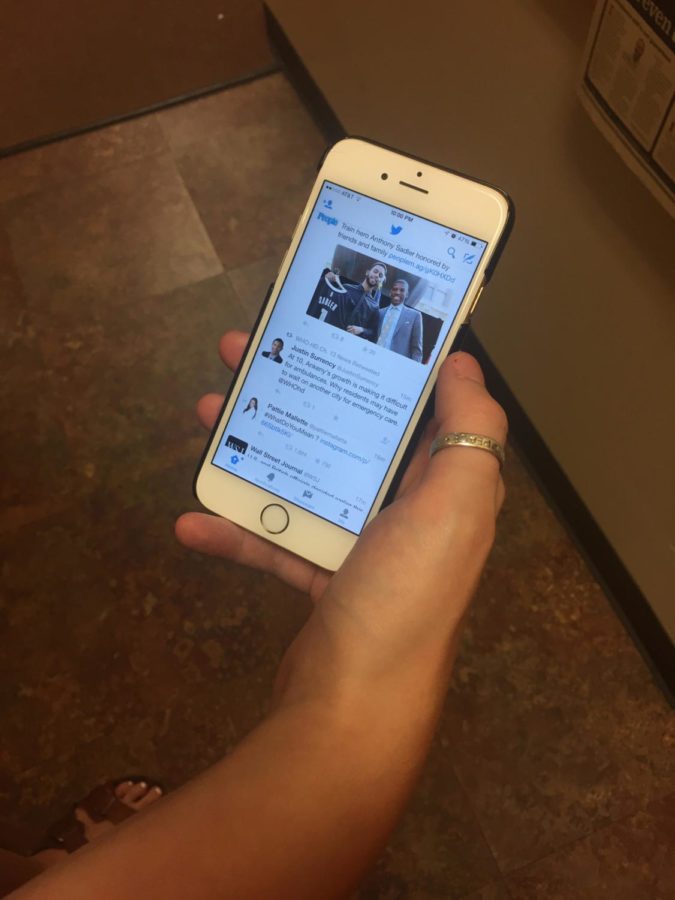Editorial: Twitter and Facebook were right to take down shooter’s accounts
August 28, 2015
When news broke early Wednesday morning that a former reporter of Virginia television station WBDJ7 shot and killed two reporters on camera during a live broadcast, the news spread instantaneously, as it often does in this digital age. Everyone with a smartphone would know, within minutes, the intimate details of the shooting because the gunman himself invited everyone to watch the gruesome events unfold by recording his own video.
Bryce Williams, born Vester Lee Flanagan, posted a video to Twitter — where he was known professionally as Williams — and one to Facebook, after he shot the young innocent television journalists Alison Parker and Adam Ward. The Twitter uploads were unapologetically captioned, “I filmed the shooting.”
Following the video posts, Twitter and Facebook suspended the shooter’s accounts. And they were right to do so.
Some may argue it was not within the social media companies’ rights, that they are infringing upon freedom of speech or that by taking down the profiles the sites are erasing evidence for law enforcement to use for investigation. Law enforcement had the necessary access, so the videos were no longer needed to be available to the public, as they were not newsworthiness.
According to Twitter’s account suspension policy, “Uploaded media that is reported and is determined to violate the law will be removed from the site, and your account will be suspended.”
Twitter also states users “may not make threats of violence or promote violence”, and if an account does so, Twitter’s actions depend on the “severity of the violation. We may ask users to verify or provide information, delete specific Tweets or we may suspend or lock the account temporarily or permanently.”
Twitter went on record saying they took down his profile eight minutes after he uploaded the videos. However, because of Twitter’s adaptations which recently made it so that videos would automatically begin to play as you scrolled over them in your feed, plenty of people saw them before the account was suspended.
By deleting the social media profiles, it discourages the sensationalism and “15 minutes of fame” some criminals achieve after receiving the attention from the media. It demonstrates showing this type of violence is not tolerated.
It also pays respect to the victims and their families. Erasing the profiles, and therefore removing the videos from public viewing, allows the victims’ friends, families and loved ones to focus more on the positive influence the victims had in their community and gives those left behind a chance to grieve.







